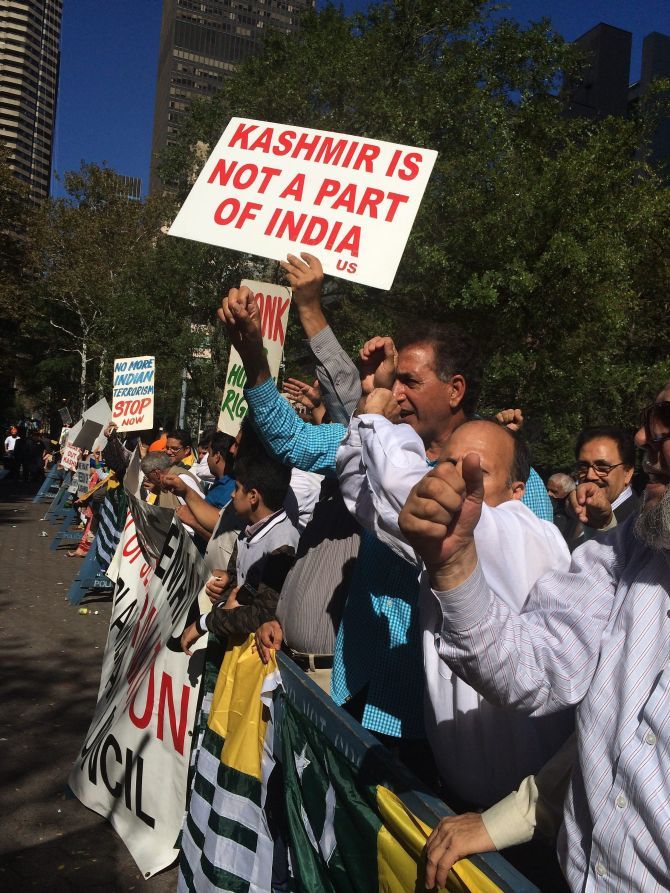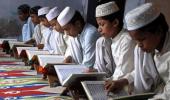 In May 2000, the then Pervez Musharraf regime in Pakistan told the US that it would not push for UN Security Council resolution on Kashmir, acknowledging that it would not be helpful in resolving the decade-old Kashmir issue with India, according to a US cable.
In May 2000, the then Pervez Musharraf regime in Pakistan told the US that it would not push for UN Security Council resolution on Kashmir, acknowledging that it would not be helpful in resolving the decade-old Kashmir issue with India, according to a US cable.
“He (Foreign Minister Abdul Sattar) noted that Pakistan would deliberately low-key the United Nations resolutions of the 1940s, as emphasising them would not be helpful,” said a secret cable issued by the US Embassy in Pakistan after the then Under Secretary of State for Political Affairs Thomas Pickering had a one-to-one meeting with Sattar in Islamabad on May 27, 2000.
Running into several pages, the cable -- which has been put on the State Department website under Freedom of Information Act -- refers to the efforts made by the then Vajpayee government in resolving the Kashmir issue.
In the highly-redacted version of the cable, Pickering is seen telling Sattar during the two-hour long meeting that the onus for reducing the violence in Kashmir is on Pakistan, to which the foreign minister agreed.
According to the cable, Sattar reacted positively to the idea of involving Kashmiris.
“He (Sattar) was puzzled about including Buddhists and Hindus in Ladakh and Jammu. He said he had personally convinced the government to go along with Hurriyat leaders talking to the Indians without a Pakistani presence,” the cable said.
“Sattar said that consulting Kashmiris does not eliminate Pakistan’s interest in the settlement and reacted with interest to the idea that a settlement needed to be developed in a way to bring Pakistan and India closer together through more open trade and economic relations,” the cable said.
In the cable, Sattar is quoted as saying that the Kashmiri leaders themselves said in 1991 that the first step would be to emphasise their participation and they could postpone final status of territorial questions for a later time.
“He (Sattar) thought that focusing on people, their self-government, etc first would make more sense and territorial issues could be left until later,” the cable said.
According to the cable, Pickering time and again told Sattar on the need to stop cross border firing and also violence inside Kashmir.
Sattar, the cable says, is beginning to think ahead on Kashmir and understands the immediate need to reduce violence along the Line of Control and inside Kashmir down the road.
At that time, Musharraf was the chief executive of Pakistan, who in a major foreign policy speech in Karachi on June 23 stressed on the need for a dialogue with India on Kashmir. “What we now need is to start a dialogue,” he said.
In another meeting with the then Pakistan Ambassador to US Maleeha Lodhi in January of that year, Pickering said that Pakistan’s policy of using non-state actors was threatening US interest.
The meeting was in the immediate aftermath of the hijacking of Indian Airlines plane, in which Pakistan’s role was quite evident.
“In those two regions (Afghanistan and India), the government of Pakistan has selected instruments, which for the first time, had come into direct conflict with the national interest of the United States,” another cable said.
Hijacking, the US diplomat said, constitutes an extreme violation of US law and should be treated as such.
Pickering told Lodhi that the Pakistan’s policy on Kashmir “have not been adept and will not gain Pakistan the support” of the international community.











 © 2025
© 2025